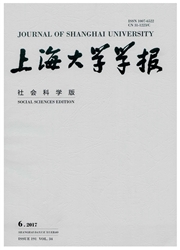

 中文摘要:
中文摘要:
我国高等教育投资制度变迁和教育投资主体的投资倾向之间存在非线性因果关系,家庭教育支出倾向和企业教育投资倾向比政府教育支出倾向对教育制度变迁的反应更敏感。因此,政府作为制度变迁的供给者,要理性对待高等教育投资制度变迁对不同教育投资主体造成的影响,从高等教育投资的效率与公平角度,不断对制度进行完善,探索政府、家庭和企业之间合理的教育成本分担机制,解决现有高等教育投资制度的供求矛盾,以实现高等教育投资制度变迁和社会主义市场经济发展的良性互动。当前,政府需要做的是:第一,在中国二元经济矛盾尚未解决的情况下,政府要对现有的高等教育投资制度进行适当的调整,通过颁布新的法律、法规增加高等教育投资制度变迁的供给,尽快完善高等教育贫困生的资助体系;第二,在目前民间资本较充裕的情况下,企业投资高等教育的意愿越来越强,政府要抓住机遇,适时补充企业投资高等教育的制度安排,使企业剩余资本服务于高等教育,促进高等教育成本分担机制更加完善;第三,作为制度变迁主体的政府,要义无反顾地承担起高等教育投资主体的主要责任,加大高等教育经费投入,扩大教育投资的规模,满足大众对高等教育的需求。
 英文摘要:
英文摘要:
There is a kind of non-linear causality between the institutional change in China's investment in higher education and the investor's tendency to investment in education. Compared with the tendency to the government expenditure on education, the tendency to the home expenditure on education and to the enterprise expenditure on education is more sensitive to the institutional change in education. Therefore, as a provider of the institutional change, the government should be rational to treat the effect of the institutional change of investment in higher education on different educational investors. The government should, from the perspective of the efficiency and equity of investment in higher education, improves institution continuously, explore the mechanism of the educational cost-sharing between the government, home and enterprise, and resolve the con- tradiction between supply and demand in existing institutional investment in higher education, so as to have a positive interaction between the institutional change of investment in higher education and the development of socialist market economy. At the present, what the government need to do is as follows: first, in view of the unsolved contradiction of China's dual economy, government should have a proper regulation of the existing in- stitutional investment in higher education, and, by establishing new laws and regulations on increasing the sup- ply of the institutional investment in higher education, perfect as soon as possible the grant system for poor students of higher education ; secondly, in consideration of the present abundant private capital and the stronger will of the enterprise's investment in higher education, the government should increase in no time the institu- tional arrangement of the enterprise" s investment in higher education, and, by way of the service of enterprise "s surplus capital, improve the mechanism of cost-sharing in higher education ; thirdly, as a provider of the in- stitutional change, the government should ass
 同期刊论文项目
同期刊论文项目
 同项目期刊论文
同项目期刊论文
 期刊信息
期刊信息
